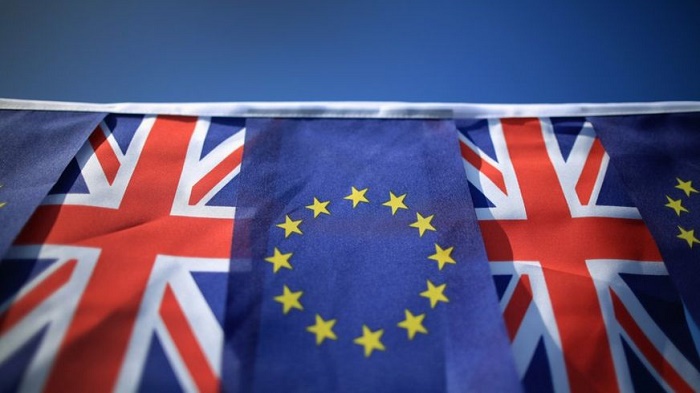On Friday Theresa May travels to Austria to meet Chancellor Sebastian Kurz and the Czech prime minister Andrej Babis, before heading off on her summer holiday.
May’s trip follows the EU chief Brexit negotiator insisting there was no difference of opinion in European capitals to exploit.
“Anyone who wants to find a sliver of difference between my mandate and what the heads of government say they want are wasting their time, quite frankly,” he told reporters at a joint press conference with the new Brexit secretary, Dominic Raab, in Brussels.
The British negotiators have become increasingly frustrated with the EU’s attitude to the white paper thrashed out at the prime minister’s country retreat. They feel that it will take an intervention by leaders, most likely at a summit in Salzburg in September, to move the dial in favour of a deal. A number of cabinet ministers have been despatched around EU capitals to make their case for greater flexibility.
The impasse in the negotiations was laid bare in the press conference in the European commission’s Berlaymont headquarters as a thunderstorm broke outside.
While Raab insisted that with “political will” a deal on trade and on avoiding a border on the island of Ireland was achievable by a crunch summit in October, Barnier offered a damning verdict on a major element of the UK’s vision of the future.
To avoid customs checks after Brexit, the government wants an unprecedented system where the UK would collect EU duties while having the freedom to set different tariffs on goods destined for the British market.
The plan would allow the UK to make its own free trade deals around the world, while not losing the benefits of frictionless trade to and from the rest of Europe.
But echoing the language of Theresa May on her goals for Brexit, Barnier responded: “Maintaining control of our money, law and borders also applies to the EU customs policy. The EU cannot and will not delegate the application of its customs policy and rules, VAT and duty collection to a non-member who would not be subject to the EU governance structures.
“Any customs arrangements or customs union – and I have always said that the EU is open to a customs union – must respect this principle.”
Moments earlier, Barnier had struck a warmer note by saying he was “particularly pleased” with the progress of talks on foreign policy and security. But he added: “On our future economic relationship, it comes as no surprise that finding common ground between the EU27 and the UK is more difficult.”
Raab, in his second appearance in Brussels since he replaced David Davis in the cabinet, claimed in response that the EU needed to display some of the creativity it had applied in the past.
He said: “We have designed our proposals both to respect the result of the referendum, and the core principles of the EU. We have considered the innovative approaches the EU has taken in the past with other third countries – when the political will has been there.”
Barnier offered the UK some cause for hope with regard to its temporary customs proposals, which are designed to avoid a hard border on the island of Ireland in the period before the final arrangements are ready.
The technology needed for the UK’s customs plan in the white paper, in the unlikely event of a U-turn by Barnier, is not expected to be ready until 2022 at the earliest.
The EU is seeking what Barnier likes to call “an-all weather insurance policy”, known as the backstop, that would kick into place should the two sides be unable to agree a new trading relationship.
The commission’s negotiator conceded that a UK-wide customs plan, avoiding a border in the Irish sea, was the goal, rather than one that simply kept Northern Ireland in the EU’s customs territory.
“We have no objection in principle to this,” Barnier said. “But we have doubts that this can be done without putting at risk the integrity of our customs union, our common commercial policy, our regulatory policy and our fiscal revenue.”
He said Raab had promised to answer those concerns when they meet again in mid-August.
The two men clashed on whether the Brexit divorce treaty would be reopened over the bill: the UK’s debts accrued over 45 years of membership that British officials estimate to be £39bn. Raab said there needed to be “conditionality” tying the Brexit divorce bill to the deal on future relations.
Barnier countered: “It is quite clear that what has been agreed in December and agreed in March has been agreed for good,” referring to the deals May signed with EU leaders.
More about: #Brexit
















































